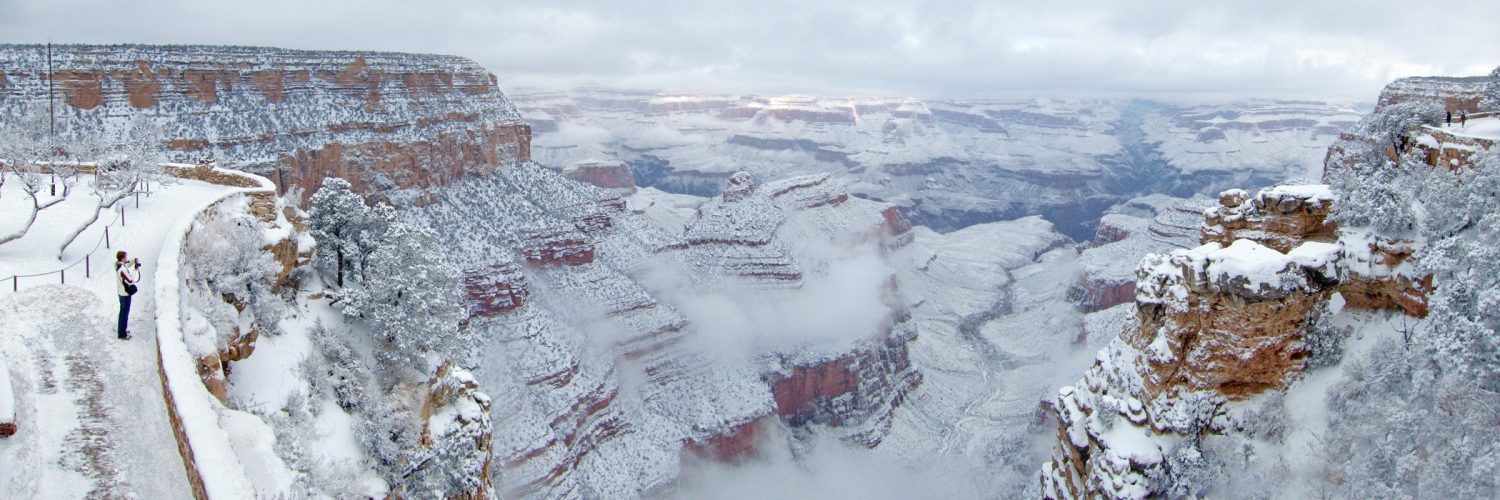“This incredible victory comes after years of bipartisan support and tireless leadership from long-term and recent champions in both the House and Senate, and reminds us that conservation of our shared outdoor spaces is something we can all come together on.“
Jamie Williams, president of The Wilderness Society
President Donald Trump signed long-awaited legislation last week to funnel billions of dollars into America’s national parks to address a massive backlog in repairs, and to make them “greater than they have ever been before.”
“The legislation I’m signing today builds on my administration’s unwavering commitment to conserving and — the grandeur and the splendor of God’s creation,” Trump said in signing the bill Aug. 4. “This is truly God’s creation.”
Strong bipartisan support finally pushed forward the measure, called the Great American Outdoors Act, which became law Aug. 9. It provides funding to address the $11.6-billion backlog in repairs and maintenance at national parks and monuments, according to the National Park Service. It also provides up to $1.9 billion a year for five years — at little or no cost to taxpayers — for grants to states and tribes to develop outdoor recreation areas, conserve habitat and protect forests.
Long-awaited investment for Arizona’s national parks
Arizona is among the most affected by repair backlogs. As of 2018, it had a maintenance backlog totaling $595.1 million, including $313.9 million in needed repairs at Grand Canyon National Park, $91 million at Lake Mead National Recreation Area, and $48 million at Petrified Forest National Park, according to the park service.
The act is expected to benefit all of Arizona, but particularly rural areas that derive revenue from visitors to places like the Grand Canyon, the country’s second most popular national park. Last year, 5.97 million people enjoyed the canyon’s 277-mile long view.
Less reliance on taxpayer dollars
The legislation contains two pieces. First, it establishes a fund to direct nearly $10 billion over five years into maintenance projects, repairs, and upgrades to national parks, monuments and historic sites. The fund, the National Parks and Public Land Legacy Restoration Fund, will receive much of its funding from federal revenues generated from the development of oil, gas, coal, or alternative or renewable energy on federal lands and waters.
Second, the act makes permanent the popular Land and Water Conservation Fund (LWCF). The fund allocates $900 million a year for grants to states and tribes to acquire and develop public parks and recreation areas and protect habitat and forests, without dependence on tax dollars. LWCF draws its money from royalties of companies drilling for oil and gas on the publicly-owned Outer Continental Shelf, according to the U.S. Department of the Interior.
Funding will be divided between the National Park Service, U.S. Forest Service, U.S. Fish and Wildlife Service, the Bureau of Land Management and the Bureau of Indian Education.
National parks boost economies in rural areas
The Act is predicted to create over 100,000 jobs nationwide and help clear the maintenance backlog on public lands.
It’s also expected to provide a much needed boost to economies in rural and tribal areas, according to Arizona’s two U.S. senators, Kyrsten Sinema (D) and Martha McSally (R), who were co-sponsors of the bill.
“Arizona is home to diverse public lands and outdoor recreation which draw millions of visitors from across the nation and world,” Arizona Lodging and Tourism Association President and CEO Kim Sabow said. “Our national, state and local parks, trails and public lands are a critical economic driver for communities.”
Before the pandemic, outdoor recreation in the state generated 201,000 direct jobs, $21.2 billion in consumer spending, $5.7 billion in wages and salaries, and $1.4 billion in state, county, and local tax revenue annually, according to the Outdoor Industry Association.
Endorsed by businesses, conservation groups
The Great American Outdoors Act was endorsed by the U.S. Chamber of Commerce, the Arizona Chamber of Commerce and Industry, hundreds of businesses, and more than 800 conservation groups, including the Backcountry Hunters and Anglers of Arizona, Arizona Sportsmen for Wildlife Conservation, Arizona Trail Association, and more.
“Passage of the Great American Outdoors Act ensures a needed economic shot in the arm for rural Arizona by investing millions in infrastructure upgrades at Arizona jewels like the Grand Canyon and Lake Mead,” Arizona Chamber President and CEO Glenn Hamer said. Members of Arizona’s congressional delegation who championed the bill included House Natural Resources Committee Chair Raúl Grijalva.
An expanded LWCF will, among other things, mean more opportunities to preserve green spaces in currently low-income and “park-poor” communities, Grijalva said.
“This is truly an investment in our children, our environment and our quality of life, and that’s why we’re seeing such bipartisan support in Congress,” Grijalva said when the bill was passed. “With climate change advancing around the country, this couldn’t come at a better time.”
















Add comment